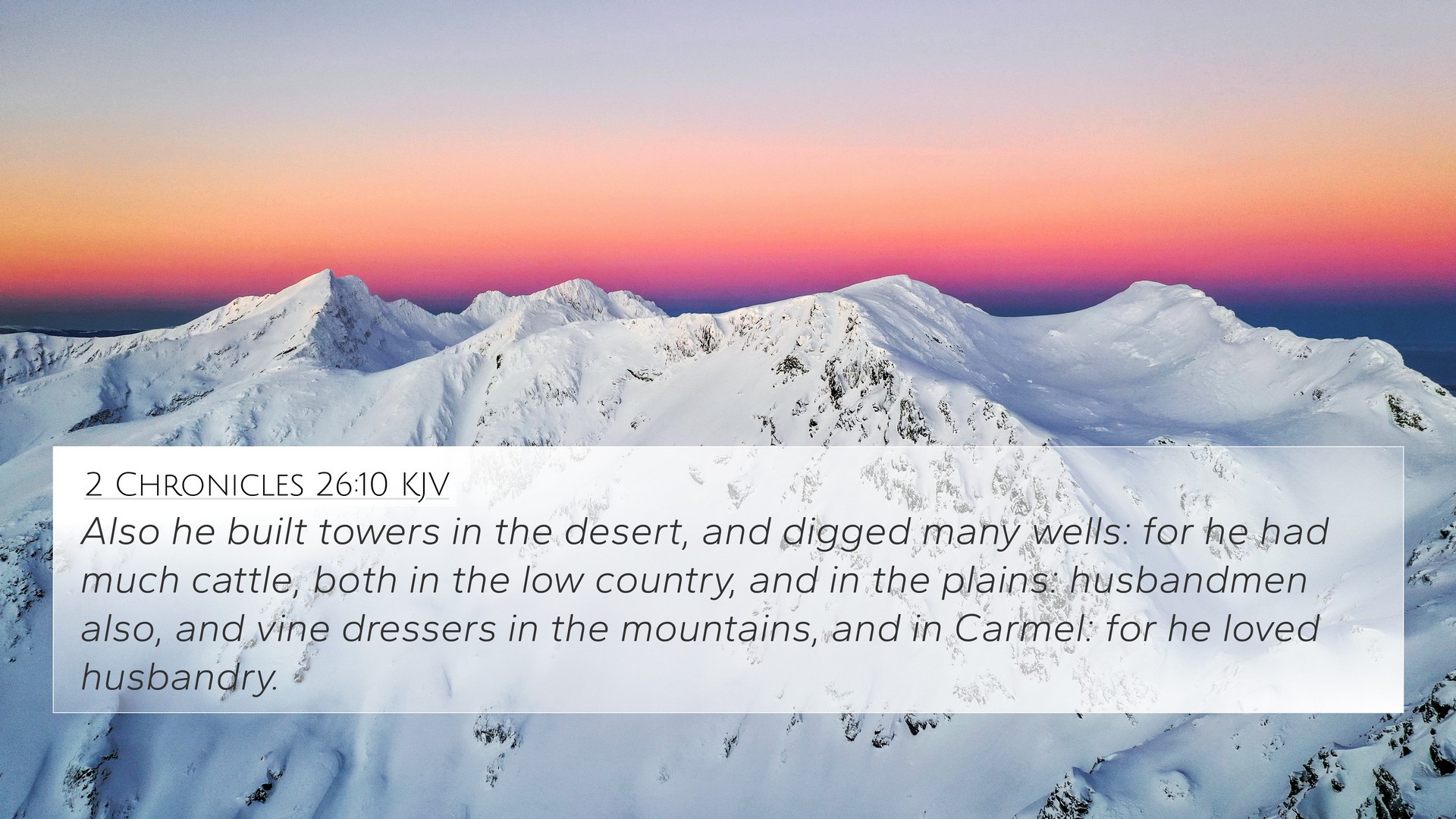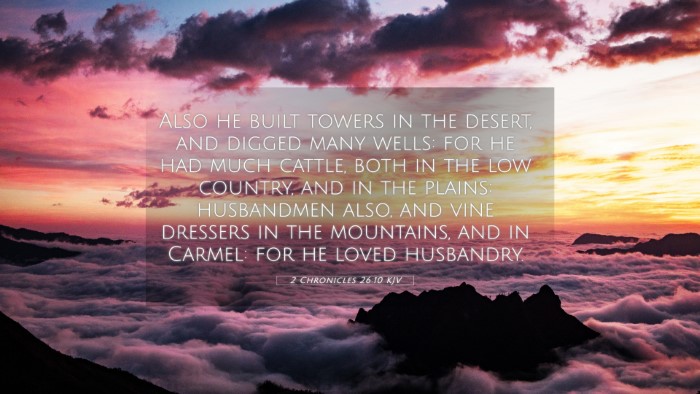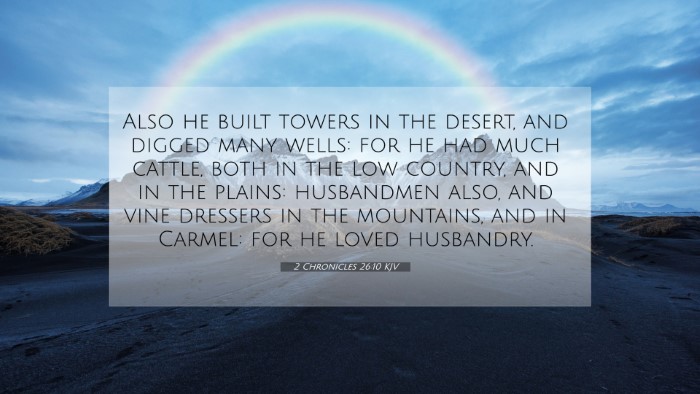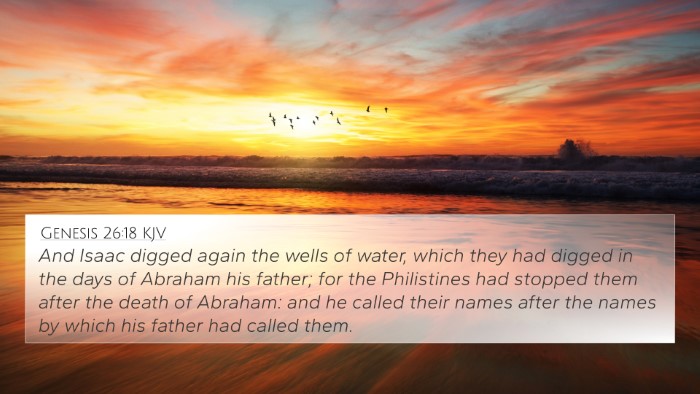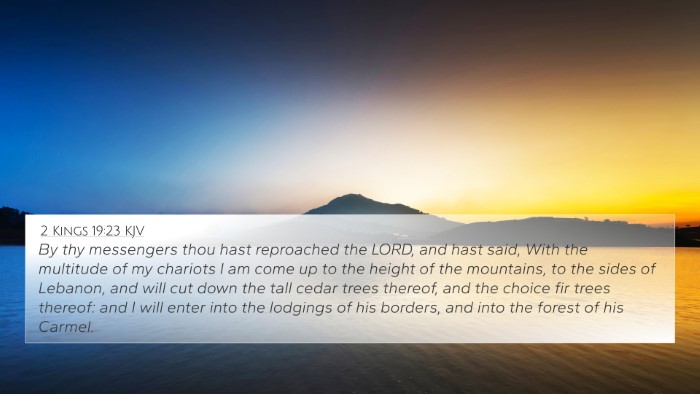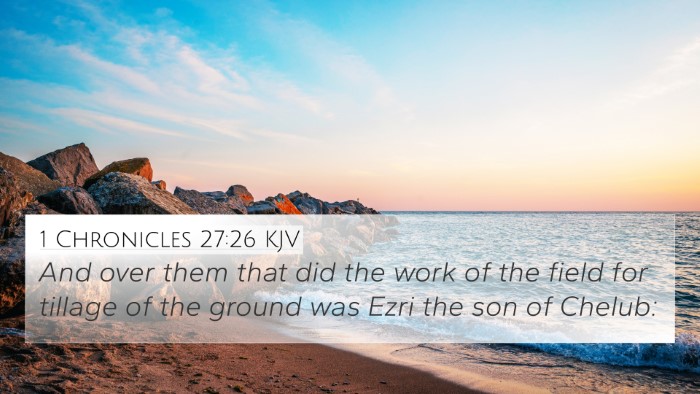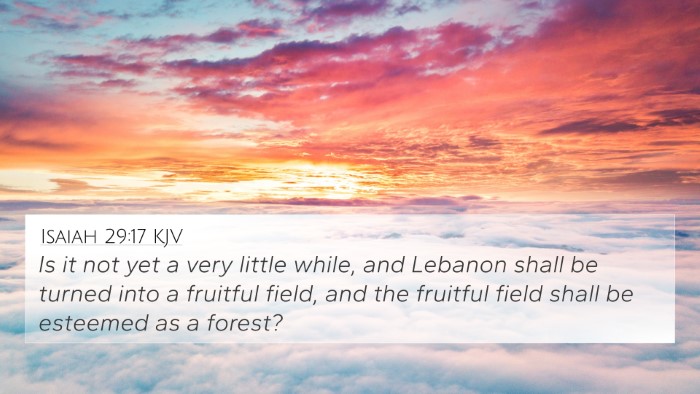Understanding 2 Chronicles 26:10
Verse: "Also he built towers in the desert, and digged many wells: for he had much cattle, both in the low country and in the plains: husbandmen also, and vine dressers in the mountains and in Carmel: for he loved husbandry."
Summary of Meaning
The passage describes the actions of King Uzziah, who significantly contributed to agricultural and infrastructural development during his reign in Judah. His investments in agriculture through the establishment of farms and wells not only indicate his love for husbandry but also reflect a period of prosperity and growth in the kingdom.
Commentary Insights
Matthew Henry, in his commentary, emphasizes that Uzziah's efforts in building towers and digging wells indicate foresight and a focus on securing resources for the nation. It highlights the importance of agricultural enterprise in maintaining national stability.
Albert Barnes notes that Uzziah’s activities were strategic, ensuring that the people were supported by means of abundant agricultural production, which allowed for the welfare of the state. This prosperity was also considered a sign of divine blessing upon Uzziah's rule.
Adam Clarke elaborates on the significance of having husbandmen and vine dressers, speaking to the diversification of the economy that Uzziah fostered. This initiative allowed Judah to thrive not only economically but also socially, as a community centered around agriculture and productivity.
Significance of 2 Chronicles 26:10
This verse illustrates the synergy between leadership and development, showing how a ruler's passion can lead to the betterment of a whole society. Uzziah's innovations in agriculture reflect a broader theme of stewardship that resonates throughout the Scriptures.
Related Bible Verses and Cross-References
- Isaiah 37:30 - God promises a surplus of crops as a sign of His blessing, reflecting the importance of agriculture.
- 2 Kings 14:23-29 - Uzziah is mentioned again, offering parallels in his reign and prosperity.
- Deuteronomy 28:3-6 - Discusses blessings associated with obedience, which ties into Uzziah's prosperous reign.
- Psalm 104:15 - Highlights God's provision for agriculture, underscoring the divine aspect of harvest and cultivation.
- Genesis 26:12-14 - Details Isaac’s prosperity in the land, similar to Uzziah's success in agriculture.
- Luke 12:16-21 - Parable of the rich fool, illustrating the value and dangers of agricultural success without spiritual insight.
- 2 Chronicles 26:4 - Provides a backdrop to Uzziah’s reign and his seeking of the Lord, which is foundational to his achievements.
Connections Between Bible Verses
The thematic connections in these verses illustrate the recurring biblical principle that diligent stewardship of the land is vital for societal stability and prosperity. All these references underline the blessings that follow obedience to God’s commands and the cultivation of one’s resources.
Conclusion: The Importance of Cross-Referencing Biblical Texts
Understanding 2 Chronicles 26:10 through the lens of cross-references enriches one's appreciation for the interconnectedness of Scripture. It emphasizes the necessity of exploring Bible verse cross-references and the connections between Bible verses in order to fully grasp the wisdom and lessons contained within the texts.
Tools for Bible Cross-Referencing
Utilizing a Bible concordance or Bible cross-reference guide, one can effectively explore and study the dynamics of cross-referenced themes in the Bible, providing a more profound understanding of how these scriptures relate to one another.
Further Study: Cross-Referencing Bible Study Methods
Engaging in cross-referencing Bible study methods allows individuals to deepen their interpretation of Scriptures, enhancing the overall understanding through comparative Bible verse analysis and identifying Bible verses that relate to each other across both the Old and New Testaments.
